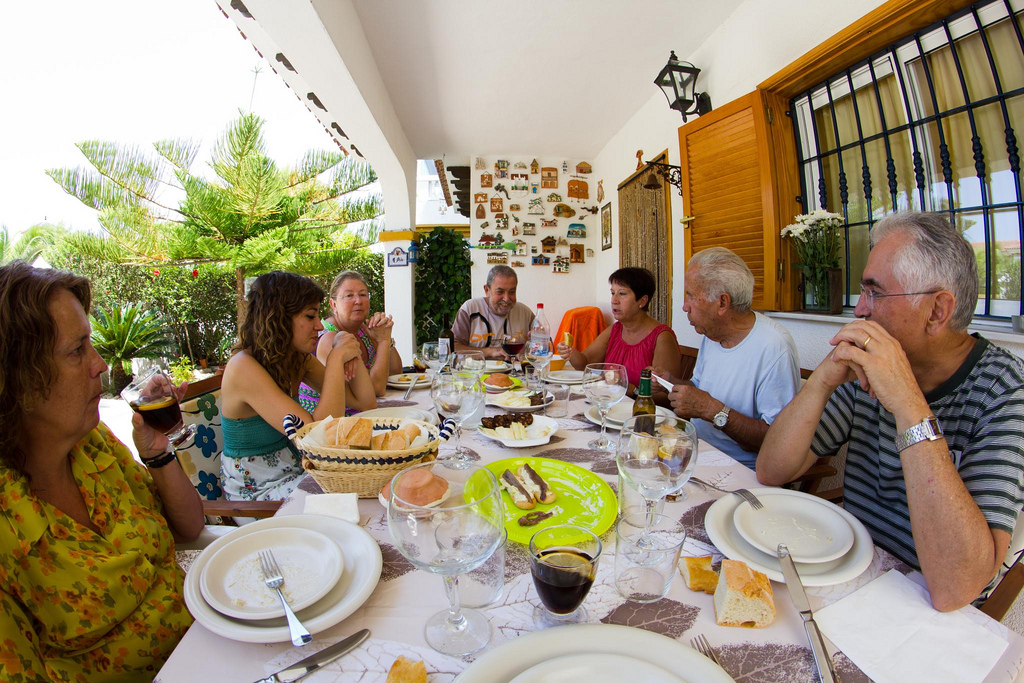Food and Drink: Dining Etiquette
Table Etiquette
Table seating is usually assigned in Spain, and the host typically sits at the head of the table with the most honored guest seated to the right. Spaniards eat in the Continental style, holding the knife in the right hand and the fork in the left, without switching. A piece of bread is often used as a utensil, usually at the end of a meal, to push food onto the fork, but is never dipped into a bowl of soup, as this is considered rude. Hands are kept above the edge of the table throughout the meal. Olive pits, common detritus at Spanish mealtimes, are discarded in a designated bowl, when one is available; otherwise, they are returned to the olive serving bowl or left at the edge of a diner’s plate. In some bars and informal eating establishments, olive pits and paper napkins are thrown on the ground to be swept up later.
Social Dimension of Dining
Spaniards begin a meal by saying Buen provecho (Enjoy your meal). It is common to extend this wish to any person seen eating, even strangers in passing. If toasts are made during a meal, the host typically makes the first address, and the sentiment is reiterated by the guest of honor later in the meal. Women are welcome to make toasts in Spain.
If invited to a dinner party, Spaniards bring gifts for the host or hostess, and sometimes any children in the household; these include candies, liquor, flowers, or toys. After the food is cleared, Spaniards engage in sobremesa, the period of time spent digesting, conversing, and enjoying a meal. Talking is, in fact, the center of every meal in Spain, rather than the food. A table that falls into silence is widely considered awkward; the silence can be broken by declaring, Ha pasado un ángel (An angel has just flown by), meaning that the diners were merely awed into speechlessness or were observing a respectful moment of silence.
Article written for World Trade Press by Christine Kiilerich.
Copyright © 1993—2024 World Trade Press. All rights reserved.

 Spain
Spain 

